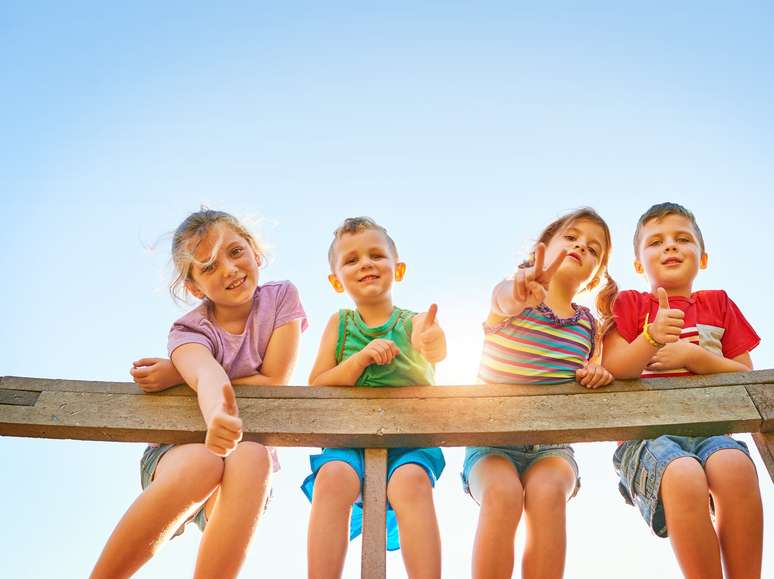The child’s development specialist explains how early childhood friendships influence the growth of the child and highlights suggestions to stimulate this behavior having friends is one of the most precious things in life. It is with friends who share laughter, explosions and even difficult moments, when support and dose are needed […]
The child’s development specialist explains how early childhood friendships influence the growth of the child and highlights suggestions to stimulate this behavior
Having friends is one of the most precious things in life. It is with friends who shares laughter, explosions and even difficult moments, when support is necessary and a dose of motivation. And for children, especially in early childhood, friendships have an even greater weight. In this phase of life, they are building their identity, discovering who they are and learn to relate to the world around them.
According to the neurosurgeon and the specialist in the development of the child, dr. André Ceballos, creating emotional ties soon contributes to the well -being of the child. “Friendship relationships in the early years of life help the child to develop empathy, learn to manage conflicts and build a healthy self -esteem. These bonds are also important for the maturation of the brain while stimulating areas related to emotions and behavior social.”
In addition to the impact on individual development, the expert explains that childhood friendships favor the sense of belonging and safety. “Children who have friends at the beginning tend to show less anxiety in new situations and better manage emotional challenges, such as adaptation to school, struggles, tension situations or the separation of parents at certain times of the day”, He says.
But it is possible to stimulate this behavior, how?
Early childhood is a decisive moment, in which interactions with other children begin to model the fundamental skills. For this, it is important that parents offer their children to interact with other children. In informal meetings, such as games of parks or structured activities such as sports groups or limbs, these moments of coexistence help the child learn to share, negotiate and put themselves in the role of the other. The more positive these experiences, the greater the child’s possibilities to develop lasting affective bonds.
In addition, Ceallos underlines that during these meetings, it is essential that parents encourage behaviors such as sharing and respect for borders. “For example, if the child is playing with a friend, it is important to learn to share toys, wait for his turn and solve small disagreements in a peaceful way. This type of learning strengthens friendship and also contributes to the emotional maturity of the child here .
Finally, the example of the parents is essential. Children learn a lot by observing the behavior of the adults around them. When parents show respect, empathy and appreciation of relationships, they moderate these attitudes for their children, who, over time, learn to replicate them. “Creating an environment of respect and affection at home is the first step for the child to bring these values to their friendships, forming bonds that go beyond childhood and extend throughout their lives,” concludes Dr. Ceballos.
Source: Terra
Ben Stock is a lifestyle journalist and author at Gossipify. He writes about topics such as health, wellness, travel, food and home decor. He provides practical advice and inspiration to improve well-being, keeps readers up to date with latest lifestyle news and trends, known for his engaging writing style, in-depth analysis and unique perspectives.








